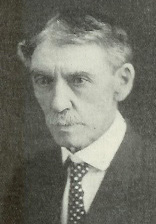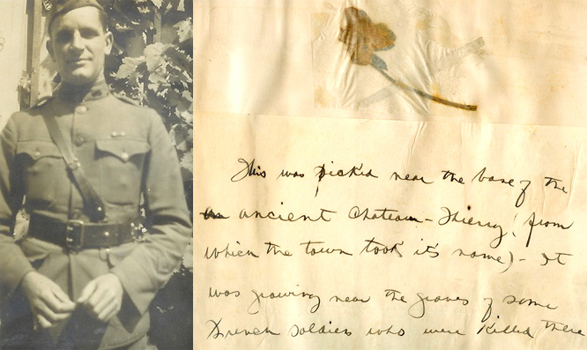Where did you spend New Year’s Day? On January 1, 1909, Bowling Green attorney Clarence Underwood McElroy found himself amongst other invited guests at the royal palace in Manilla, Philippines. Governor-General James Francis Smith invited McElroy, who was on an extended trip to the Orient, to the “national holiday” soiree. McElroy recorded the temperature at 89 degrees and noted that the “grounds men elaborately decorated [the courtyard] with Japanese lanterns and electric lights in the fountain.” He goes on: “The Palace is designed for entertaining and was built by the Spanish and was occupied by the Spanish Governor-General. The rooms are very large with beautiful mahogany hardwood floors of planks from 12 to 15 inches wide. The Palace is right on the river bank and boats come up to the porch. The reception was largely attended. All the elite being out in force…American, English, Spanish and Filipino.”
Governor-General Smith had served with Theodore Roosevelt’s Rough Riders during the Spanish-American War and was part of the first expeditionary force to the Philippines during that same conflict. He later served as an associate justice on the Supreme Court of the Philippines and subsequently on the Taft Commission which was responsible for developing a legal code for the Philippines. William Howard Taft appointed him as Governor-General in 1906, and he served in that capacity until 1909. During this period the Philippine Assembly convened for the first time.
Clarence McElroy, one of the most revered members of the Bowling Green bar, kept a detailed account of his trip to the Orient. On this trip he visited the Sandwich Islands (Hawaii), Japan, Hong Kong, China, Ceylon and the Philippines, and he jotted down copious notes about the industrial, economic, and cultural aspects of each country. To learn more about his journal, click here. In addition to these travel journals, Library Special Collections houses over 50 boxes of correspondence and case files related to McElroy; to view the finding aid for this collection click here. A portion of McElroy’s diary is included in an online exhibit titled “Seven Continents” which features travel items found in Library Special Collections.



